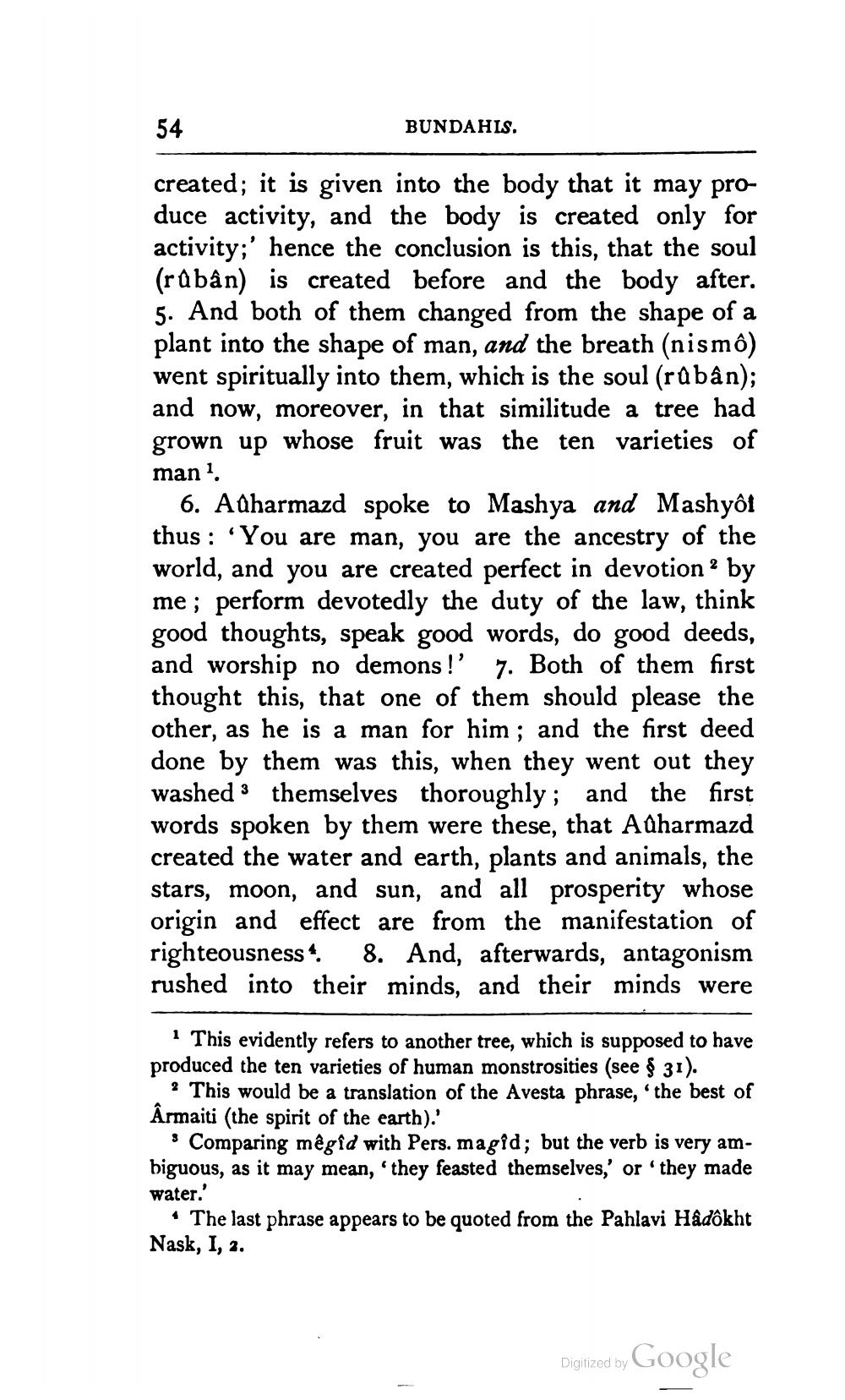________________
BUNDAHLS.
created; it is given into the body that it may produce activity, and the body is created only for activity;' hence the conclusion is this, that the soul (râbân) is created before and the body after. 5. And both of them changed from the shape of a plant into the shape of man, and the breath (nismô) went spiritually into them, which is the soul (růbân); and now, moreover, in that similitude a tree had grown up whose fruit was the ten varieties of mani.
6. Adharmazd spoke to Mashya and Mashyôi thus : 'You are man, you are the ancestry of the world, and you are created perfect in devotion ? by me; perform devotedly the duty of the law, think good thoughts, speak good words, do good deeds, and worship no demons!' 7. Both of them first thought this, that one of them should please the other, as he is a man for him; and the first deed done by them was this, when they went out they washed 3 themselves thoroughly; and the first words spoken by them were these, that Adharmazd created the water and earth, plants and animals, the stars, moon, and sun, and all prosperity whose origin and effect are from the manifestation of righteousness. 8. And, afterwards, antagonism rushed into their minds, and their minds were
1 This evidently refers to another tree, which is supposed to have produced the ten varieties of human monstrosities (see $ 31).
? This would be a translation of the Avesta phrase, the best of Ármaiti (the spirit of the earth).'
Comparing mêgîd with Pers. magid; but the verb is very ambiguous, as it may mean, they feasted themselves,' or 'they made water.'
• The last phrase appears to be quoted from the Pahlavi Hådôkht Nask, I, 2.
Digitized by Google




